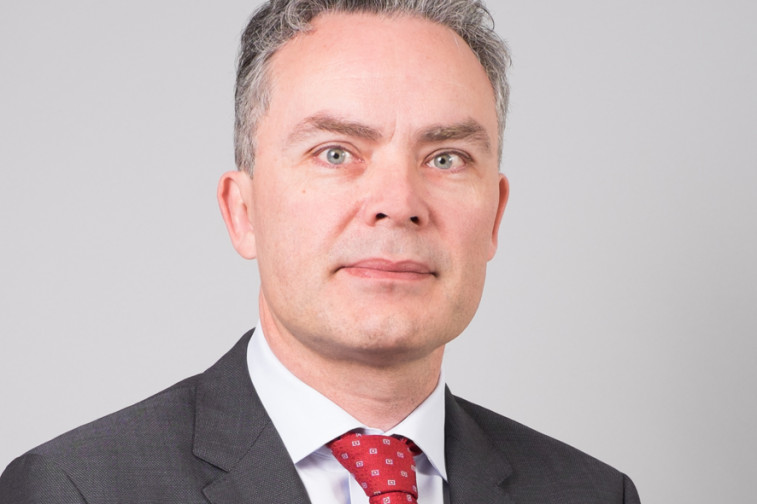EY - Institutional investors shifting allocation strategies are driving hedge funds towards new products
As asset growth in traditional hedge funds from institutional investors continues to slow, hedge fund managers are pinning their hopes on the power of new products to attract investor assets and drive growth. However, many are underestimating the costs involved and the effect on margins, according to EY’s 2014 global hedge fund and investor survey: Shifting strategies: winning investor assets in a competitive landscape.
Given this backdrop, managers are trying to offer investors more flexibility on fees and tailored offerings via separately managed accounts and regulated fund products. They are hoping to attract a new class of investor – private wealth platforms – as well as developing regulated liquid alternatives products to try to attract new investors. The largest managers are even developing sub-advisory capabilities and insurance-related products
Michael Ferguson, EMEIA Regulated Funds Practice and Luxembourg Wealth & Asset Management Leader at EY Luxembourg
The trend of a gradual slowing of allocations to traditional hedge funds continues. In 2012, 20% of institutional investors that were surveyed expected an increase in their allocation while in 2013 that percent declined to 17%. In our 2014 survey, 13% responded that they plan to increase their allocation to traditional hedge funds in the next three years, while 13% expect to decrease their allocation and 74% expect it to remain the same. In North America and Europe, those investors decreasing allocations outweighed those increasing by approximately 25%. Among those investors that would like to increase or maintain allocations, 40% say they face obstacles such as allocating too much to a single asset class.
Michael Ferguson, EMEIA Regulated Funds Practice and Luxembourg Wealth & Asset Management Leader at EY Luxembourg says: “Given this backdrop, managers are trying to offer investors more flexibility on fees and tailored offerings via separately managed accounts and regulated fund products. They are hoping to attract a new class of investor – private wealth platforms – as well as developing regulated liquid alternatives products to try to attract new investors. The largest managers are even developing sub-advisory capabilities and insurance-related products.”
New products can have a negative impact on margins
Nearly one in four managers that launched a product in the last three years say it has had a negative impact on margins. This is particularly true of those offering sub-advisory arrangements (43% said it had a negative impact vs. 21% positive impact on margins). Regulated products and separately managed accounts clearly create risk for margins as well – 30% of hedge funds say launching regulated products has hurt their margins (45% of those who offer UCITs say margins have been negatively impacted) and 24% say separately managed accounts have done so.
Michael Ferguson adds:
“The impact on margins for these new products is logical. Separately managed accounts often come with fee concessions that impact margins and add complexity to reporting, sub-advisory relationships can carry unique reporting requirements and service provider demands, and regulated liquid alternatives are lower fee products that require significant investment to set up. In fact, the negative impact on margins is most acute here in Europe and among larger managers, both of whom have been at the forefront of product development in regulated liquid alternatives. Without scalable operations, managers are likely to take a hit on margins when they launch new products.”
Regulatory reporting also hurts margins and is creating a barrier to entry
Regulatory reporting expenses can translate into an added drag on margins, reaching 6% on average, assuming a historical margin of 30%.
Michael Ferguson says:
“Regulatory reporting expenses, which were negligible even a couple of years ago, have grown significantly and are now impacting managers’ bottom line. For smaller managers it represents nearly a 7% drag and is creating a clear barrier to entry for new and emerging fund managers.”
Protection from cyber attacks a major concern for the industry
In addition, cloud computing and cybersecurity have become major concerns across the hedge fund industry for regulators as well as investors. Of all managers surveyed, 85% said that security concerns are the main impediment in using the cloud, and although 80% of managers expect to increase their spend on cybersecurity, few have made investments thus far. Fewer than one in three investors are confident in their managers’ cybersecurity policies. Given that cybersecurity is a significant risk, managers need to prioritize their investment strategy in this area.
Smaller funds are having trouble raising capital to develop new products
Forty-six percent of the largest managers surveyed (those with more than US$10b under management) offer or plan to launch more regulated funds, including UCITS, as a top priority; 32% are focusing on separately managed accounts; 14% offer or plan to launch sub-advisory capabilities; and 11% plan to launch insurance-related products. Similarly, the top priorities for mid-size managers (US$2b-US$10b) are separately managed accounts (28%) and regulated funds (31%), whereas smaller funds (less than US$2b) are most focused on developing their long-only offering (35%).
Michael Ferguson says:
“Our survey shows that managers who have not yet launched new products often underestimate the investment required to successfully bring a product to market and do not perform sufficient planning – this is particularly true for regulated funds due to the increased operational complexity in reporting and compliance functions.”
Managers think that regulated liquid alternative products require the most investment to set up (29% expect to have to make a very significant investment). More than half of managers say they are making the most significant investment in new technology to support their new products. Thirty percent of managers launching separately managed accounts are making the biggest investment in the front office, compared to 15% of those launching regulated products. But 12% of those launching regulated products are also making significant investment in the back office.
Larger managers point to challenges in developing infrastructure (29%) and hiring key personnel (25%). But when it comes to capital rising, just 8% of larger managers said this was a challenge compared to 33% of mid-sized managers and 47% of smaller managers. In addition, the smallest managers also struggle with distribution channels, with a third naming this as the biggest challenge in adding new products or offerings.
Michael Ferguson says:
“Investors consistently report that, when selecting a manager, they are most interested in the clarity of the investment philosophy and developing confidence in the management team. But there seems to be a mismatch between this and what managers think the decision is being based on, which is long-term and short-term investment performance. Given the increase of new products, it is more critical than ever that managers give investors confidence in their ability to generate future returns at appropriate risk levels rather than peddling past performance.”
Communiqués liés
2023 : une année de transition et de transformation
Lors de l’Assemblée générale qui s’est tenue le 24 avril 2024, les acti...
Cargolux posts profit for 2023
The Cargolux Group (Cargolux) generated a positive net result for its 2023 finan...
Gcore Recognised as Highly Commended in the Industry Innovat...
Gcore acknowledged for successful launch of first AI speech-to-text solution for...
MOMENTUM 2024 drives sustainable solutions forward
Deloitte’s annual MOMENTUM Conference fosters a dynamic exchange between indus...
Nouvelle recrue au service client de NO-NAIL BOXES : Nadine ...
NO-NAIL BOXES, le fabricant luxembourgeois de caisses pliantes en bois contrepla...
Réseau ETRE est le nouveau lauréat du Degroof Petercam Fou...
Réseau ETRE remporte la sixième édition du Degroof Petercam Foundation Award....
Il n'y a aucun résultat pour votre recherche







